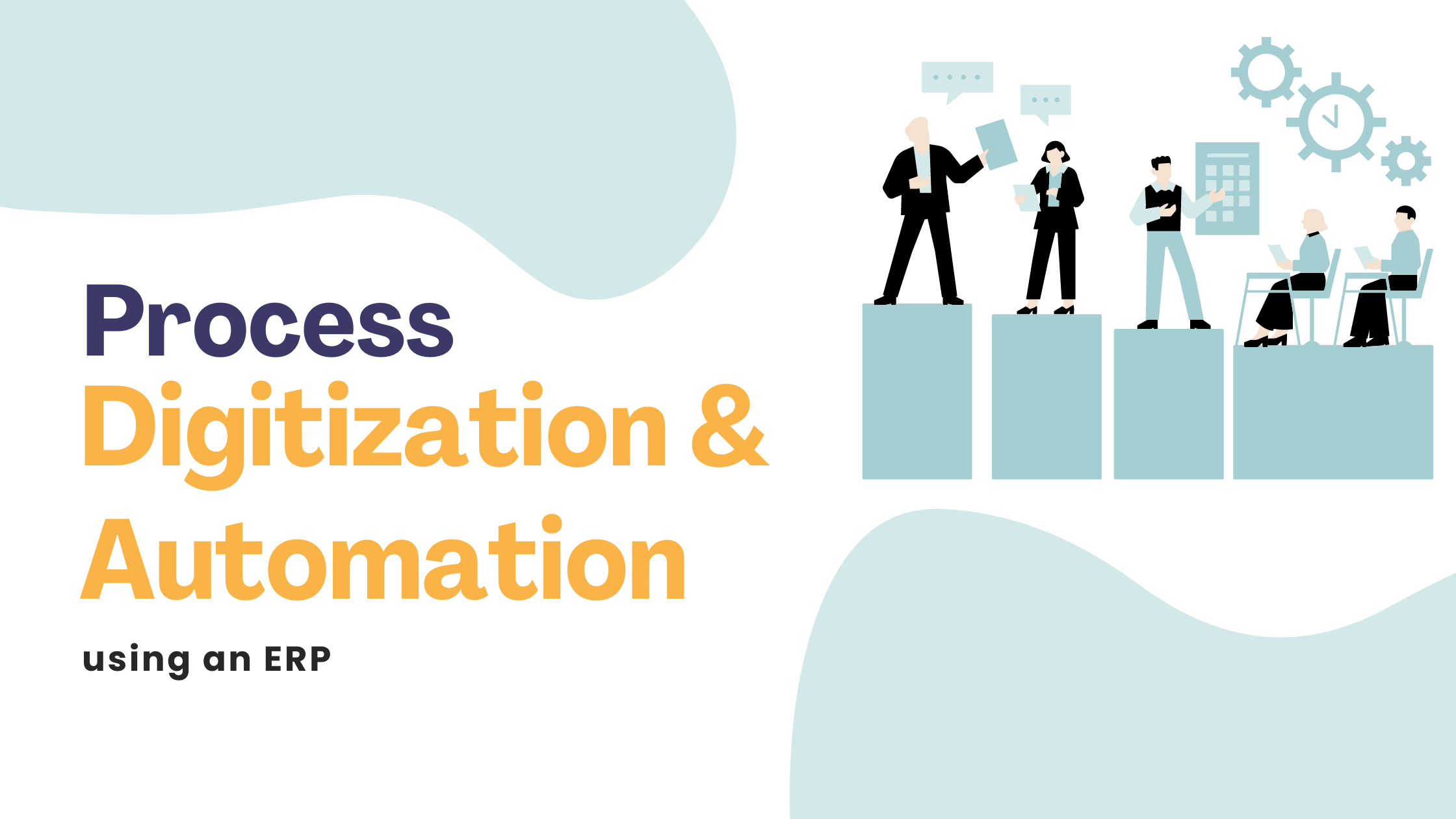Digitizing and Automating Processes with ERP: Enhancing Company Performance
Enterprise Resource Planning (ERP) systems have become indispensable tools for modern businesses aiming to optimize their operations and improve overall performance. By digitizing and automating various processes, ERP systems help companies reduce inefficiencies, streamline workflows, and enhance decision-making capabilities. This article explores key processes and operations that can be digitalized and automated using ERP, supported by real-life examples and relevant statistics.

- Financial Management: Financial management is one of the most critical areas where ERP systems can make a significant impact. By automating financial processes such as accounts payable and receivable, budgeting, and reporting, ERP systems improve accuracy and efficiency while reducing the risk of human error.
Case Study - Pfizer: Pfizer, a global pharmaceutical company, implemented an ERP system to automate its financial management processes. The system allowed Pfizer to standardize its financial operations across multiple regions, leading to a 30% reduction in financial closing times. The automation of financial processes also improved the accuracy of financial reporting, enabling better compliance and decision-making. - Supply Chain Management: ERP systems can revolutionize supply chain management by providing real-time visibility into inventory levels, procurement processes, and supplier performance. This digitalization helps companies reduce lead times, optimize inventory levels, and enhance supplier relationships.
Case Study - Nike: Nike, the leading sportswear manufacturer, faced challenges in managing its complex global supply chain. By implementing an ERP system, Nike gained real-time insights into its supply chain operations, allowing for better demand forecasting and inventory management. The digitalization of supply chain processes resulted in a 15% reduction in inventory costs and a 20% improvement in order fulfillment rates. - Human Resources Management: Human resources (HR) management is another area where ERP systems can drive significant improvements. By automating HR processes such as recruitment, payroll, performance management, and employee self-service, ERP systems enhance efficiency and employee satisfaction.
Case Study - Starbucks: Starbucks, the global coffeehouse chain, utilized an ERP system to automate its HR processes. The system enabled Starbucks to streamline recruitment, onboarding, and payroll management, reducing administrative burdens and improving employee experience. The automation of HR processes contributed to a 25% reduction in HR-related costs and a 10% increase in employee retention rates. - Customer Relationship Management (CRM): Integrating CRM with ERP systems allows companies to automate and optimize customer-related processes, such as sales, marketing, and customer service. This integration enhances customer satisfaction and loyalty by providing personalized experiences and timely responses.
Case Study - Coca-Cola: Coca-Cola implemented an ERP system with integrated CRM capabilities to improve its customer relationship management. The system provided Coca-Cola's sales and marketing teams with real-time access to customer data, enabling personalized marketing campaigns and proactive customer service. As a result, Coca-Cola achieved a 12% increase in sales and a 15% improvement in customer satisfaction scores. - Production and Manufacturing: ERP systems play a crucial role in digitizing and automating production and manufacturing processes. By integrating production planning, scheduling, quality control, and maintenance, ERP systems help companies optimize their manufacturing operations and reduce downtime.
Case Study - General Electric (GE): General Electric (GE), a multinational conglomerate, leveraged an ERP system to automate its manufacturing processes. The system allowed GE to integrate production planning with real-time data from the shop floor, improving production efficiency and reducing downtime. The digitalization of manufacturing processes led to a 20% increase in production capacity and a 15% reduction in operational costs. - Procurement and Sourcing: Automating procurement and sourcing processes with ERP systems helps companies streamline vendor management, purchase order processing, and contract management. This automation reduces procurement cycle times and enhances supplier collaboration.
Case Study - Siemens: Siemens, a global engineering company, implemented an ERP system to automate its procurement processes. The system provided Siemens with real-time visibility into supplier performance and procurement activities, leading to better negotiation outcomes and reduced procurement costs. The automation of procurement processes resulted in a 10% reduction in procurement cycle times and a 12% improvement in supplier collaboration.
Statistical Evidence of ERP Benefits
- Operational Efficiency: According to Panorama Consulting Solutions, 81% of businesses reported improved operational efficiency after implementing an ERP system.
- Cost Savings: A report by Nucleus Research found that ERP systems can reduce operational costs by 23% on average.
- Decision-Making: The Aberdeen Group reported that organizations with ERP systems are 44% more likely to have real-time access to data for decision-making.
- Productivity: A study by Forrester Consulting revealed that companies using ERP systems experienced a 16% increase in employee productivity.
ERP systems have the potential to transform various business processes through digitalization and automation. By enhancing financial management, supply chain operations, human resources, customer relationship management, production, and procurement, ERP systems contribute to improved efficiency, cost savings, and overall company performance. Real-life examples from industry leaders like Pfizer, Nike, Starbucks, Coca-Cola, GE, and Siemens demonstrate the significant benefits of ERP systems. Backed by compelling statistics, it's clear that digitizing and automating processes with ERP is a strategic move for companies looking to thrive in today's competitive business environment.
